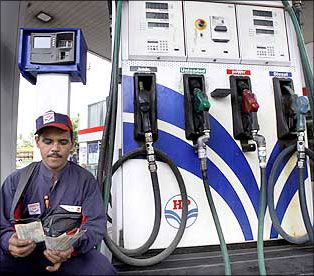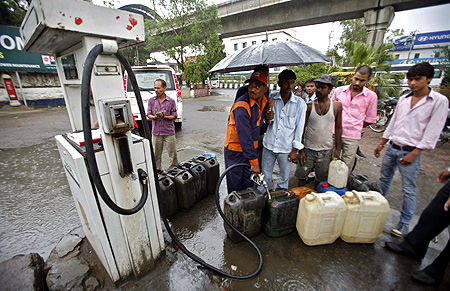 On Saturday, the Union Cabinet of the National Democratic Alliance government met and took several important decisions, especially some dealing with petroleum products.
On Saturday, the Union Cabinet of the National Democratic Alliance government met and took several important decisions, especially some dealing with petroleum products.
A new formula for pricing natural gas in the domestic market was determined; the decontrol of diesel prices was announced; and the scheme that directly transferred subsidies to bank accounts of users of liquefied petroleum gas (LPG) cylinders was modified and relaunched.
It is good news that the government has taken these progressive steps; all three of them are broadly in the right direction. However, they are not quite enough in each case, and the government must follow up with further action.
The decision on natural gas pricing was politically controversial and long delayed. The new formula is an improvement on the previous candidate, derived by a committee headed by C Rangarajan, who was the chairman of the economic advisory council of former prime minister, Manmohan Singh.
Many problematic elements in the Rangarajan formula have been dropped, such as the Japan price, which is inflated because that country is only a consumer market and its price includes many hidden margins.
The India price based on the landed cost of imported gas has also been left out, which is sensible.
Further, until arbitration with Reliance ends, the gas from the disputed blocks in the Krishna-Godavari basin will not be included in the price hike — which is fair. But a 34 per cent price rise will nevertheless increase costs.
Some downstream user industries, such as fertilisers, have prices that are not yet freed. Unless those prices are also freed, this increase in gas prices will inflate the government’s subsidy bill.
There is a similar problem when it comes to the power sector, where tariff differentials for sectors have already played havoc. The gas price revision will prove expensive to the taxpayer unless the government follows up with freeing end-user prices in gas-intensive industries.
It is important to note, however, that in some major ways the government is retaining control over pricing in a bid to attract investments into gas exploration.
For example, a “premium” has been promised for making investments in higher-cost areas, such as for deep-sea exploration.
It is not clear what norms will be followed to determine this premium, and how transparent the process will be. If it is purely a ministerial decision, that would be a step backward.
Diesel price decontrol is the planned end-point of the gradual increase in diesel prices since January 2013. It will be hailed, certainly, when crude oil prices are going down, as they are today.
The political establishment, however, must show equal firmness about following market principles when crude oil prices go up. The important point here is that the government should completely distance itself from pricing decisions; those should be taken entirely by the oil companies.
The decisions taken by oil marketing companies will now be carefully watched to see if this decontrol is genuine. Indeed now that both petrol and diesel prices are decontrolled, the oil companies should be allowed to move away from co-ordinating their prices.
The true test of whether market-based pricing has been introduced is if individual oil companies use price movements to compete with each other.
Finally, there is the reworking of direct benefit transfers, or DBT, for LPG cylinders. But, again, it is meaningless unless the real hard work of fixing the back-end is undertaken - seeding bank accounts with Aadhaar numbers.
Real political capital has not been expended here, though. Genuine reform would be to limit or eliminate an LPG subsidy for families that are above the poverty line.











 © 2025
© 2025